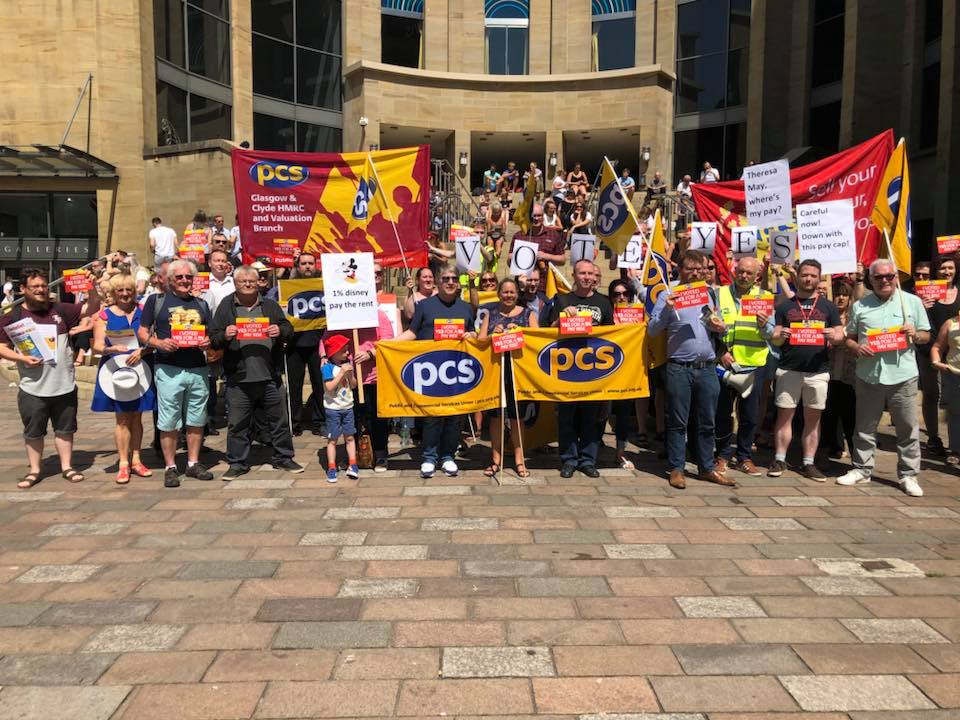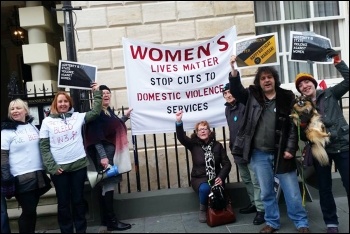Utility bill and council tax hikes… benefit cuts…
End austerity. Fight for a living wage!
Dave Carr
Despite a £30 billion windfall in the government’s coffers, Tory chancellor Philip Hammond’s spring statement signals a continued squeeze on low-income families.
Because of a freeze on benefits the poorest households will lose on average £400 this year. Also, the government’s austerity measures will mean cuts to Universal Credit and increases in council tax. Shockingly, it’s reported that cuts and delays to Universal Credit payments are forcing some women into sex work.
But the cost of living crisis doesn’t stop there. Gas and electricity bills are set to rise from 1 April, as are water charges, the TV licence fee, and NHS prescriptions in England.
In the next fortnight, working-class people will also be adversely impacted by higher car tax, increases in mobile phone network charges, the higher cost of postage stamps, and a hike in ‘class three’ national insurance contributions which count towards a state pension.
Wages
But an average worker’s annual real wage remains hundreds of pounds below what it was over a decade ago when the capitalist financial crisis erupted. And since then successive governments, while bailing out the super-rich elite and the capitalist system to the tune of trillions of pounds, have imposed pay freezes, ie pay cuts, on millions of public sector workers.
But organised workers are fighting back. Low-paid civil servants, many of who actually qualify for the benefits they administer, are balloting for strike action over the next month to demand better pay. Their union, the PCS, is demanding a modest 10% rise.
Katrine Williams, PCS national executive and Socialist Party member, says: “There’s huge discontent over low pay but yet again the Treasury wants to restrict our pay rise to 1%. An imposed increase in contributions to our pension scheme has wiped out the miserable 1% pay ‘rises’, so pay has literally gone down before you even take into account cost of living rises.
“However, with the government in complete disarray we recognise now is a good time to fight back on pay and win.”
Working-class people have had enough of austerity. We’ve had enough of the tax-dodging super-rich. And we’ve had enough of this zombie government. Let’s get organised and fight back.
“Decade of unprecedented cuts”
Sue Powell, Gloucester Socialist Party
Despite food bank usage, an economic slow-down, and planned closures and job cuts at Nissan, Honda, Wedgewood and Tescos, the Tories recently announced austerity was over thanks to the government’s handling of the economy. Unsurprisingly, the spring budget statement delivered nothing.
You do not have to be socialist to know their claims are rubbish. The Institute for Fiscal Studies reports that over two-thirds of the poor are employed, compared to 1994/95 when 44% of the poor worked. The Economist confirms: “Weak earnings growth and strong employment growth mean that the large majority of households in poverty now have someone in paid work”. A growth in jobs means more people with several low paid jobs, more false self-employment scams, more toil for less.
Yet the Tories still blame the ‘idle poor’, defending sanctions and their cruel efforts to get people with disabilities off benefits. Thus the benefits freeze continues, as will the income cap at which parents no longer qualify for child benefit.
The freeze on local government and education spending continues too. Local authority spending on youth services fell by 18% over the last five years. There were massive cuts to early intervention services for young people at risk of teenage pregnancy, substances misuse and crime. Even the Tory Lord Porter, chair of the Local Government Association (LGA), warned: “The money local government has to maintain the services our communities rely on is running out fast and huge uncertainty remains about how local services will be paid for into the next decade”.
The Joseph Rowntree Foundation argues that ending the benefits freeze a year early would take 200,000 people out of poverty.
Funding slashed
Funding from central government for local authorities was almost halved between 2010/11 and 2017/18. The LGA complains that nothing has been done to redress the £6 billion cut from councils’ social care budgets since 2010 and shows that council tax increases will not work, especially in poorer areas with large numbers of elderly people and unpaid carers. It explains how a 2% council tax increase in East Lindsey, with 30% of people aged over 65, would raise £30 per older person per year, while in Richmond-upon-Thames with 15% aged over 65, it would raise £95.
A comment from the Institute for Fiscal Studies refers to a “decade of unprecedented cuts” in which “The richest are seeing their earnings grow faster than everybody else … you might be concerned about that if you care about inequality but those people pay a lot of tax”. But the idea of high tax revenues and ‘trickle down’ wealth does not ring true, especially as staffing levels at tax offices have been slashed and budgets have offered more give-aways for the rich.
The chancellor’s statement did not even mention people with disabilities. It ignores carers too. Women are the majority of those needing social care and the bulk of those providing it, both paid and unpaid. They are more likely than men to depend on bus services, more likely to use libraries and as the main carers of children are hit hardest by cuts to services for children and young people. Women fill the gaps when services disappear.
They not only suffer from public service cuts, they are losing jobs too: 78% of all council employees and 90% of teaching assistants and support staff are women. The impact of cuts to services dealing with violence against women and girls has been devastating. According to a survey by Women’s Aid, in 2017 20.3% of refuges received a quarter or less of their funding from local councils – 12% received none at all.
There is a clamour of voices from across society, institutes and charities, professional bodies, councils and their organisations, all “disappointed by the spring budget statement”. But we know the Tories aren’t going to listen. It will be up to the trade unions, anti-cuts groups and local communities to challenge the cuts, defend services and fight for public ownership as a basis for running and funding vital public services – council tax increases are not an answer. The need for socialism has never been clearer.
The first of the above articles was printed in issue 1034 of the Socialist and posted on the Socialist Party website; the second was added to the website later.









